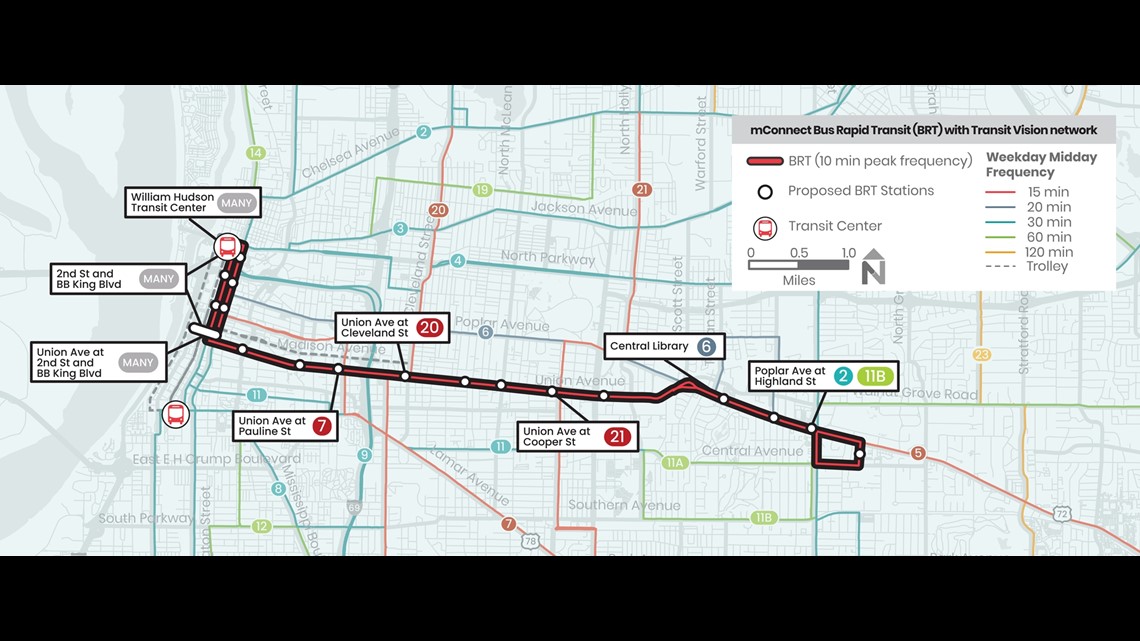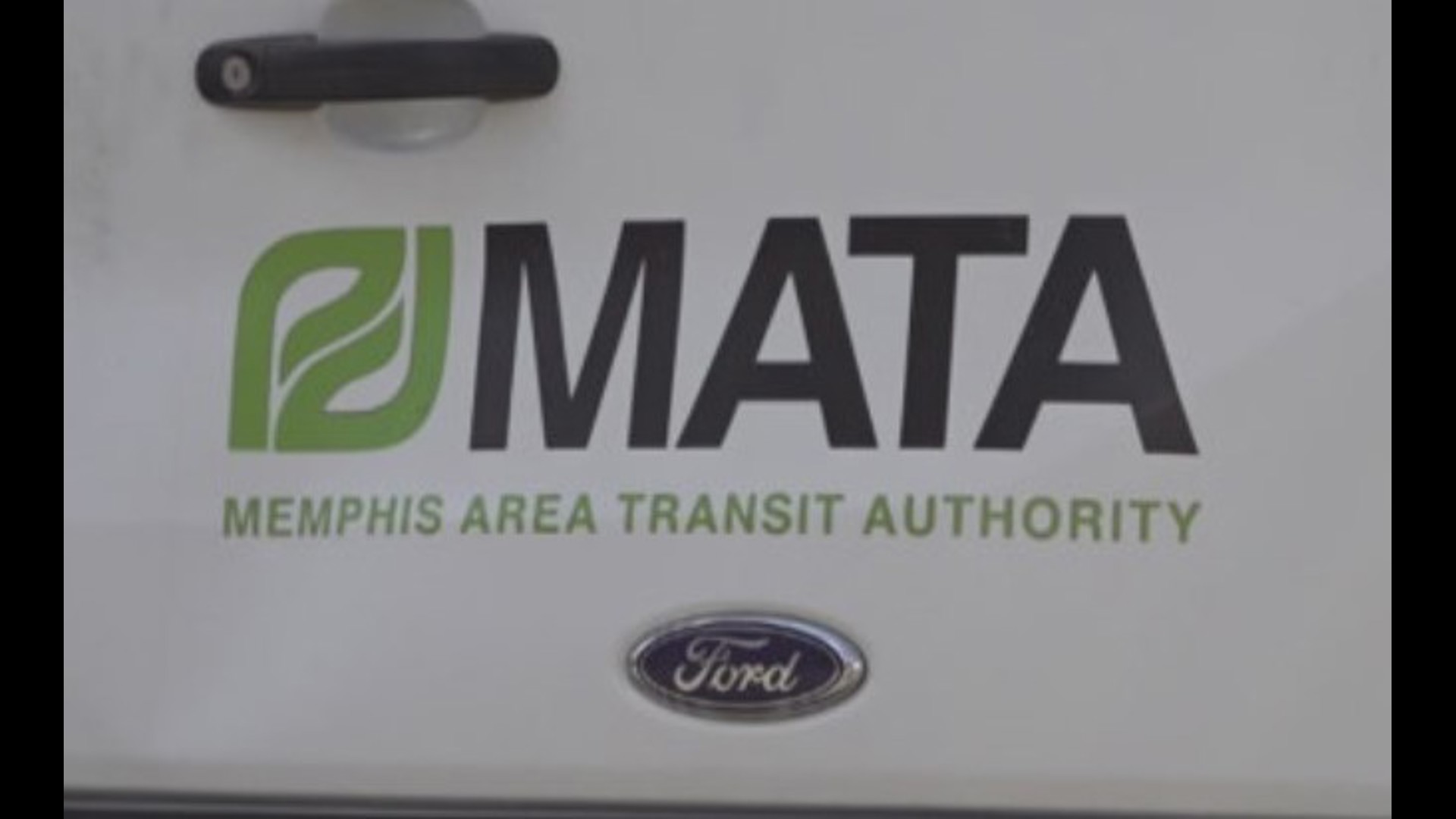MEMPHIS, Tenn. — The Memphis Area Transit Authority, or MATA, has been in the public eye for years, and its financial and transportation plans have received both admiration and scrutiny from Memphians. It says that a recent round of bus routes and job cuts were part of their strategy to get their budget down from $85 million to around $67 million.
"You're going to have people around this city who depend on Memphis area transit authority who are going to lose their jobs, who are going to lose their lifeline to get to their destination to the doctor's office or to the grocery store," said Johnnie Mosley, Founding Chairman of Citizens For Better Service. "And that is a sad thing. A lot of people in the city of Memphis, Tennessee, are not going to be able to afford Uber or Lyft because they're barely able to afford to feed their family."
After receiving nearly $140 million in grants in 2022, MATA is now in a $60 million deficit. In early August, trolley services were suspended indefinitely because of safety concerns and costly financial recommendations from TDOT. Then, a budget approval in late August cut fixed routes and disclosed more than 200 layoffs that were since cut down to 50. MATA says it has notified the 50 employees whose layoffs become effective on November 2. This differs from the data shared in a meeting on September 10; MATA reported that 52 union workers, 18 trolley workers, and 28 administrative employees were laid off. In addition, 75 other positions were cut. Councilwoman Yolanda Cooper-Sutton voiced her frustrations.
"No one knew that there was a deficiency coming down the pipeline?" she said. "So you're going to actually tell me, and I'm going to tell you what my spirit is discerning: someone is lying and not telling the truth. That's as simple as that. And I'm not saying that you are. I would never say that. I'm not saying that you are because you've been gifted a problem. But you're not going to tell me the educated board with all them alphabets behind their names that no one knew and saw this coming for 10 years?"
Interim CEO Baccarra Mauldin climbed MATA's ranks and started her position on February 2, 2024, following former CEO Gary Rosenfeld. At the start of her tenure, she brought in Chief Financial Officer Hamish Davidson to show her more of MATA's financial position.
"That was about the same time that we received notice from the Tennessee Comptroller's Office that we had also run a $60 million deficit during the prior fiscal year," she said. "Now that deficit, as we continue to investigate, part of it was OPEB, part of it was pension liability, and then about 20 million of it was an actual operating deficit."
In 2022, MATA received four grants from the Department of Transportation, totaling nearly $140 million, which it said was the most significant federal investment in its almost 50-year history. $54 million was devoted to a new operations and maintenance facility, $22 million was for clean electric buses and charging stations, and nearly $64 million was for the Memphis Innovation Corridor Rapid Transit connecting most residents to anywhere in the city in 30 minutes or less. In fiscal year 2023, an audit shows that MATA's net position was just under $38 million, following a trend of more financial expenses than revenue.
"MATA currently does not have enough funding to operate at a capacity to serve the people who are using MATA, and we have to be intentional about supporting public transportation in this city in particular because a large percentage of people live in the city of Memphis, live in poverty and rely on their transportation to get to and from work," said JB Smiley, Chairman of the Memphis City Council.
Mayor Paul Young ordered a forensic audit into MATA in August to understand where things now stand and how this deficit began. ABC24 asked Mayor Young's office if he could disclose any updates on the audit in late August, and his team replied on Tuesday that they are waiting until the audit and TransPro findings are concluded.
"If we're concerned about crime, we're concerned about poverty, we will be concerned about public transportation," Smiley said. "I think all of those things will go hand in hand, and we have to support public transportation in the city limits."
"There are some things that we would need to do to be able to bring our trolleys back, and they just simply aren't in the budget, and so we made the difficult decision to suspend those services, but they will be back," said Mauldin. "We are committed to bringing them back with the appropriate level of funding, and that's what we're working on diligently, to get the appropriate funding for our entire organization."
In a city committee meeting Tuesday morning, Mauldin and Davidson said that the concerns over lack of transparency and budget were valid. They continued to break down their 2025 budget, showing where each part of the revenue would come from. Davidson said they predicted MATA would have an operating cost of around $60 million, leaving a surplus of about $7 million.
"The revenue that we make from fairs, from advertising and things like that, it really only covers a small portion of our expenses," Mauldin said.
Cooper-Sutton continued, "No one took into consideration of the employees and their families and how they're trying to manage to live. I'm just saying, you said, right down the hall. No disrespect to you at all. But I'm not going to sit here, and you're not going to sit here, and no one in here is going to sit here and say that no one knew."
Another question centers around the nearly $64 million for the Memphis Innovation Corridor Bus Rapid Transit (BRT) system, which was initially expected to be completed in 2026. This plan was designed to increase the frequency of public transit in Memphis, connecting most residents to anywhere in the city in 30 minutes or less.


mConnect is expected to improve travel time and reliability for transit riders along the corridor. Further, with BRT vehicles arriving every 10 minutes during peak travel times and direct connections to 18 bus routes, however, 3 years into the proposed construction of this plan, there are no results to be shown, and the money is nowhere to be seen. Without mConnect service and Groove On-Demand services, which are now heavily encouraged, ABC24 has heard from riders who are currently unsatisfied with services.
One attendee of a recent MATA public hearing said, "I cannot go any further on the demand service, Cleveland and Union; if I need to go further, I need to get additional transportation."
Another continued, "That's why people don't want to deal with On-Demand service, because you say you're gonna pick them up, and you don't pick them up. It's not consistent."
MATA representatives told ABC24 that the Bus Rapid Transit/mConnect project will likely have to push its 2027 completion timeframe back, but they did not say when.
Smiley says MATA will continue to be held accountable.
"That goes without saying, but we also have to figure out ways that the city of Memphis can hold MATA accountable, make sure we have that type of oversight that we need," he said. "A lot of times, when it comes to MATA, or entities like MLGW as well, the council does not have what I consider necessary oversight to ensure that the people of Memphis are being served the way they should be served, with exceptional service from the beginning to the end."

